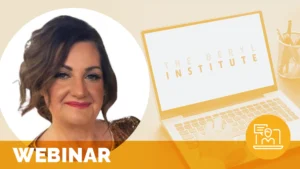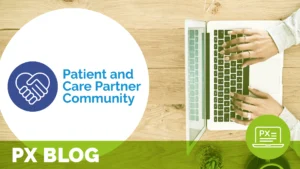PX Chat on PFA/PFACS: New/Getting Started (February 5, 2025)

12pm ET / 11am CT / 10am MT / 9am PT – Join The Beryl Institute community for an opportunity to connect with your peers on the support and resources needed to address efforts around new and getting started with PFAs and PFACs in their organizations. Breakout discussion groups allow you to share your challenges, celebrate your successes, and discover what other organizations are doing.
Inspired by the work of The Beryl Institute GPFAB, PXPF Patient & Family Partnership Workgroup, and sparked by community PX chats, a series of monthly PX Chats focused on various stages of the PFA/PFAC engagement have been scheduled.
PX Chats are a member benefit. This event does not offer patient experience continuing education credit (PXE).
Related content
-
 Culture & Leadership | Patient Family & Community Engagement | Staff & Provider Engagement
Culture & Leadership | Patient Family & Community Engagement | Staff & Provider EngagementA System-Wide Transformation in Human Experience at NSW Health
Global Headliner Webinar Series (Complimentary) – Join us as we reflect, reconnect, and recommit to elevating the human experience—not as an initiative, but as a way of being. Tuesday, August 19, 2025 10:00 PM EDT – Eastern Daylight Time (New York) Wednesday, August 20, 2025 12:00 PM AEST – Australian Eastern Standard Time (Sydney, Melbourne,
Learn more -
 Patient Family & Community Engagement
Patient Family & Community EngagementHope for Healthcare
Members of The Beryl Institute’s Global Patient and Family Advisory Board wish you happy holidays. As 2024 draws to a close, we asked our members to jot down their hopes for healthcare as we welcome the upcoming new year. Tony Serge: My hope for healthcare is for leadership, providers, and staff to work together with
Learn more -
 Patient Family & Community Engagement
Patient Family & Community EngagementDriving Healthy Behaviors through Social Support: The Role of Co-Responsibility in Weight Loss and Maintenance
The effectiveness of out of hospital lifestyle interventions in healthcare is likely co-dependent on social support from involved one’s. We sought to investigate the interrelationships between patient-partner Co-responsibility, Spousal Support, and Self-efficacy and the mechanisms through which they contribute to health behaviors and outcomes relevant to weight loss and maintenance.
Learn more
